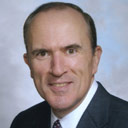Francis J Serbaroli
July 29, 2002 | New York Law Journal
Health LawH ISTORICALLY, New York has had one of the nation`s most comprehensive and complex systems for policing and regulating the provision of health care. As a result, the laws and regulations that apply to health care operations in New York are also comprehensive and complex.
By Francis J. Serbaroli
10 minute read

March 31, 2008 | New York Law Journal
Health LawFrancis J. Serbaroli, a partner at Cadwalader, Wickersham & Taft, writes that New York has what is known as the Internet Security Breach and Notification Act (ISBNA), which applies to any business in New York that owns or licenses computerized data that includes private information about New York residents. The law recognizes the right of state residents "to know when they have been exposed to identity theft."
By Francis J. Serbaroli
12 minute read

May 25, 2010 | New York Law Journal
Health Care Reform Law's Anti-Fraud ProvisionsIn his Health Law column, Francis J. Serbaroli, a shareholder at Greenberg Traurig, reviews some of the fraud and abuse provisions in the Patient Protection and Affordable Care Act, including changes to the False Claims Act and the federal Anti-Kickback law, new rules on Medicare or Medicaid overpayments, and new disclosure requirements for everything from drug companies to health insurers to nursing homes.
By Francis J. Serbaroli
12 minute read

September 29, 2010 | Legaltech News
ALJ Upholds Right to Inspect N.Y. Agency's Computer SamplingA recent decision by an administrative law judge in New York found that a pharmacy had the right to challenge and inspect the computer code used by Office of Medicaid Inspector General to produce a statistically valid sample in extrapolating claims to calculate Medicaid repayment demands.
By Francis J. Serbaroli
10 minute read

January 31, 2006 | New York Law Journal
Health LawFrancis J. Serbaroli, a partner at Cadwalader, Wickersham & Taft, writes that in its ongoing investigation into fraud and abuse by major pharmaceutical companies, the federal government has struck gold. A number of prominent companies have settled civil and criminal charges for pricing and marketing fraud in the past five years and have cumulatively paid more than $2 billion in restitution, fines and penalties.
By Francis J. Serbaroli
14 minute read

November 28, 2006 | New York Law Journal
Health LawFrancis J. Serbaroli, a partner at Cadwalader, Wickersham & Taft, writes that because Medicare Part D is so broad and complex, it has created substantial opportunities for fraud. This column summarizes the kinds of fraud that are the current targets of the Office of Inspector General of the U.S. Department of Health and Human Services.
By Francis J. Serbaroli
14 minute read

March 22, 2011 | New York Law Journal
When to Get Counsel Involved in Audits, Investigations and Self-DisclosuresIn his Health Law column, Francis J. Serbaroli of Greenberg Traurig, LLP discusses the proliferation of audits and investigations of health care providers by government agencies and contractors. He offers suggestions on when to handle these audits and investigations internally, and when to get the assistance of experienced health care counsel.
By Francis J. Serbaroli
10 minute read

March 29, 2006 | New York Law Journal
Health LawFrancis J. Serbaroli, a partner at Cadwalader, Wickersham & Taft, writes that with their skyrocketing expenditures for prescription drugs, federal and state governments have demonstrated a marked interest in ensuring pharmaceutical company compliance with prescription drug pricing and marketing statutes.
By Francis J. Serbaroli
12 minute read

July 20, 2004 | New York Law Journal
Health LawFrancis J. Serbaroli, a partner at Cadwalader, Wickersham & Taft, analyzes the legal issues behind Internet websites offering the services of English-speaking physicians who are located in foreign countries.
By Francis J. Serbaroli
11 minute read

January 31, 2007 | New York Law Journal
Health LawFrancis J. Serbaroli, a partner at Cadwalader, Wickersham & Taft, writes that for generations, most not-for-profit hospitals in the United States have been accorded exemptions from almost all forms of taxation. As charitable organizations, their revenues were not taxed, and the real estate occupied by the institution has been free of property taxes.
By Francis J. Serbaroli
11 minute read
Trending Stories
- 1Litigation Leaders: Greenspoon Marder’s Beth-Ann Krimsky on What Makes Her Team ‘Prepared, Compassionate and Wicked Smart’
- 2A Look Back at High-Profile Hires in Big Law From Federal Government
- 3Grabbing Market Share From Rivals, Law Firms Ramped Up Group Lateral Hires
- 4Navigating Twitter's 'Rocky Deal Process' Helped Drive Simpson Thacher's Tech and Telecom Practice
- 5Public Notices/Calendars
More from ALM
- Scan In Progress: Litigators Leverage AI to Screen Prospective Jurors 1 minute read
- Legal Speak at General Counsel Conference East 2024: Match Group's Katie Dugan & Herrick's Carol Goodman 1 minute read
- Legal Speak at General Counsel Conference East 2024: Eric Wall, Executive VP, Syllo 1 minute read



